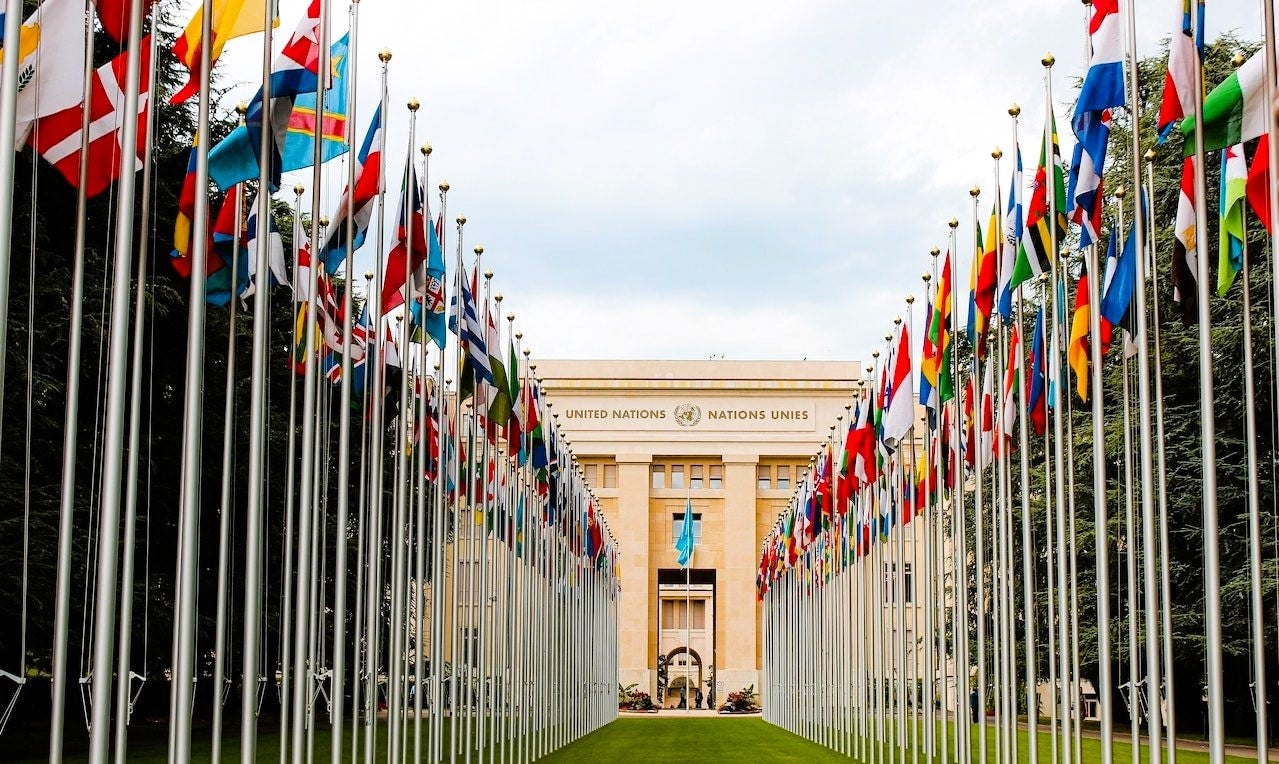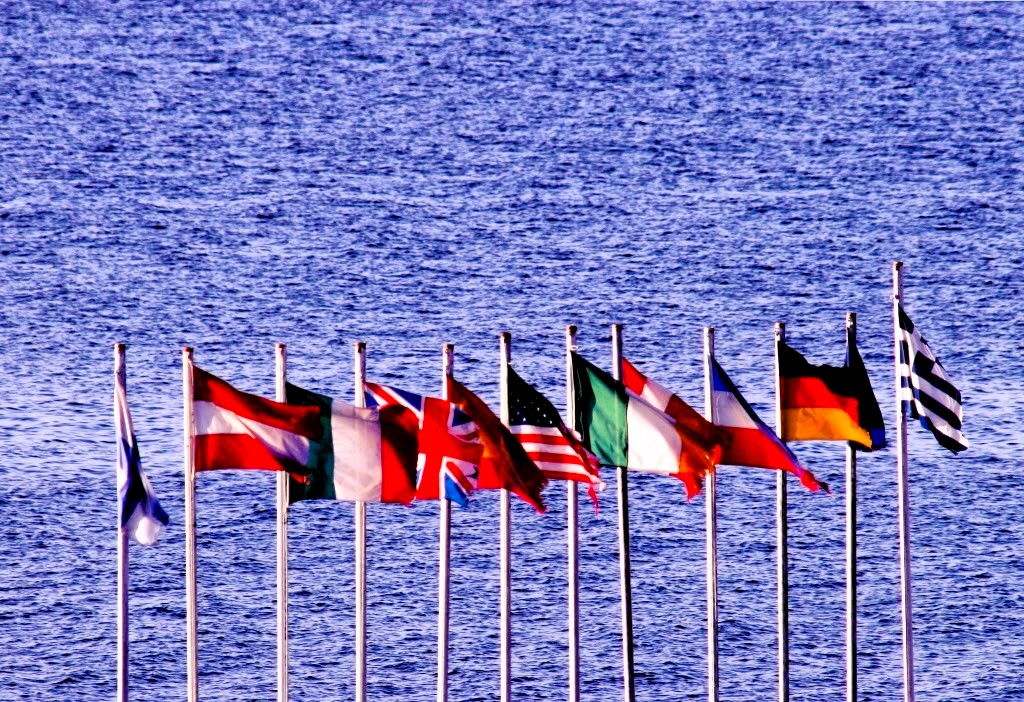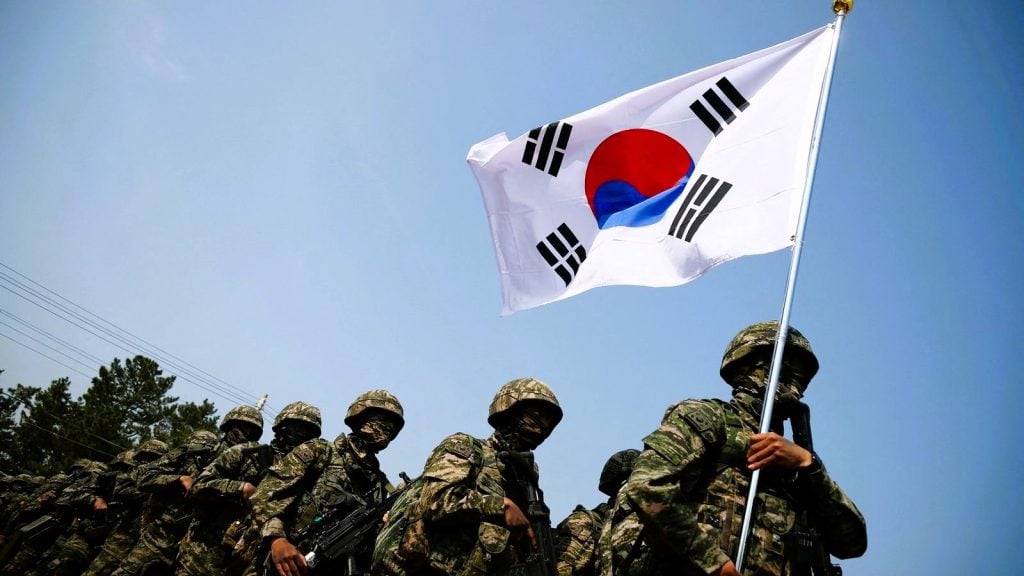The global landscape is constantly evolving, and the balance of power among nations is a dynamic and multifaceted phenomenon. Understanding the world’s most powerful countries is not only fascinating but also crucial for anyone seeking to navigate the intricate web of international relations. In this comprehensive analysis, we delve into the factors that shape the power and influence of nations, exploring the key attributes that set the Powerful Countries in the world 2024.
Methodology for Ranking Powerful Countries
Assessing a country’s power and influence is a complex task that requires a holistic approach. The ranking of the world’s most top ranking countries in 2024 is based on an equally weighted average of scores across five key attributes:
- Economic Influence: A nation’s economic prowess, measured by its Gross Domestic Product (GDP) and other economic indicators, plays a pivotal role in its global standing.
- Political Influence: A country’s ability to shape international policies, lead diplomatic initiatives, and exert sway over global decision-making processes is a crucial aspect of its power.
- Military Strength: The size, capability, and technological advancement of a nation’s armed forces contribute significantly to its overall power and influence.
- Strength of International Alliances: The network of strategic partnerships and the ability to forge influential global alliances are key determinants of a country’s power.
- Soft Power: A nation’s cultural, educational, and technological achievements, as well as its ability to attract and persuade, are important components of its soft power.
By considering these multifaceted attributes, the ranking model provides a comprehensive assessment of a country’s power and influence on the global stage.
The Top 10 Most Powerful Countries in the World in 2024
1. United States
The United States maintains its position as the world’s most top ranking country in 2024, cementing its status as a global superpower. With a GDP of $28.78 trillion and a population of 339.9 million, the US continues to dominate the international landscape through its unparalleled military might, economic influence, and technological innovation. The Biden administration’s focus on infrastructure development and climate change initiatives, coupled with the country’s leadership in the tech industry, solidifies the US’s standing as a force to be reckoned with.
Key Highlights:
- Capital: Washington, D.C.
- GDP per Capita (PPP): $85,373
- Area: 9,833,517 sq. km
6 Toughest Special Forces Fitness Tests in the World 2024
2. China
Emerging as the second-most top ranking country in 2024, China has solidified its position as a global economic powerhouse. With a GDP of $18.53 trillion and a population of 1.42 billion, the country’s growing influence is evident through its ambitious Belt and Road Initiative, which aims to boost economic development and trade connectivity across Asia, Africa, and Europe. China’s technological advancements, particularly in artificial intelligence and 5G, have also contributed to its rising global prominence.
Key Highlights:
- Capital: Beijing
- GDP per Capita (PPP): $21,476
- Area: 9,596,960 sq. km
3. Russia
Russia’s strategic geopolitical positioning, vast natural resources, and formidable military capabilities have earned it the third spot in the ranking of the world’s most powerful countries in 2024. With a GDP of $2.06 trillion and a population of 144 million, Russia continues to wield significant influence on the global stage, leveraging its space program and energy resources to assert its presence. The country’s focus on exploring the moon and other celestial bodies further enhances its scientific and technological prowess.
Key Highlights:
- Capital: Moscow
- GDP per Capita (PPP): $36,485
- Area: 17,098,242 sq. km
4. Germany
As the leading economy in the European Union, Germany has solidified its position as the fourth-most top ranking country in the world in 2024. With a GDP of $4.59 trillion and a population of 83.2 million, the country is at the forefront of the EU’s green energy initiatives, transitioning towards renewable sources and reducing carbon emissions. Germany’s focus on digital transformation across various sectors, including manufacturing and healthcare, has also contributed to its global influence.
Key Highlights:
- Capital: Berlin
- GDP per Capita (PPP): $63,150
- Area: 357,022 sq. km
5. United Kingdom
The United Kingdom, with a GDP of $3.5 trillion and a population of 67.7 million, has secured the fifth spot in the ranking of the world’s top ranking countries in 2024. The country’s post-Brexit trade deals and negotiations have been a significant focus, as it aims to establish new economic partnerships. Additionally, the UK’s thriving tech industry, with London as a central hub for innovative startups, has bolstered its global standing.
Key Highlights:
- Capital: London
- GDP per Capita (PPP): $54,603
- Area: 243,610 sq. km
6. South Korea
South Korea’s position as the sixth-top ranked country in the world in 2024 is a testament to its technological prowess and innovative capabilities. With a GDP of $1.76 trillion and a population of 51.7 million, the country is home to several leading tech companies, contributing to its strong global economic influence. South Korea’s commitment to reducing carbon emissions and adopting renewable energy sources further enhances its position as a forward-thinking and environmentally conscious nation.
Key Highlights:
- Capital: Seoul
- GDP per Capita (PPP): $50,070
- Area: 99,720 sq. km
7. France
France, with a GDP of $3.13 trillion and a population of 64.7 million, has secured the seventh spot in the ranking of the world’s top ranking countries in 2024. The country’s focus on digital transformation and green energy initiatives, coupled with its influential role within the European Union, have solidified its position as a key player on the global stage. France’s ability to shape EU policies and regulations contributes to the bloc’s economic and political stability.
Key Highlights:
- Capital: Paris
- GDP per Capita (PPP): $55,493
- Area: 643,801 sq. km
8. Japan
Japan, the world’s fourth-largest economy with a GDP of $4.11 trillion and a population of 123.2 million, has claimed the eighth position in the ranking of the world’s most powerful countries in 2024. The country’s strength is reflected in its technological prowess, with a focus on the growth of chip manufacturing, AI, and electric vehicles. Japan’s passport is also among the most powerful in the world, granting visa-free or visa-on-arrival access to 194 countries.
Key Highlights:
- Capital: Tokyo
- GDP per Capita (PPP): $45,573
- Area: 377,915 sq. km
9. Saudi Arabia
Saudi Arabia, with a GDP of $1.11 trillion and a population of 36.9 million, has secured the ninth spot in the ranking of the world’s most powerful countries in 2024. The country’s significant influence in the global oil industry, with 17% of the world’s proven crude oil reserves, has been a major contributor to its power. Additionally, Saudi Arabia’s strategic alliance with the United States and its investments in tourism and ambitious projects like the NEOM city have further solidified its position.
Key Highlights:
- Capital: Riyadh
- GDP per Capita: $59,065
- Area: 2,149,690 sq. km
10. United Arab Emirates
The United Arab Emirates has made a remarkable leap, securing the tenth position in the ranking of the world’s most powerful countries in 2024. With a GDP of $527.8 billion and a population of 9.51 million, the UAE has emerged as a significant player on the global stage, thanks to its focus on its space program and its influential role in the global oil industry. The country’s strategic location and its ambitious plans to explore the lunar surface have contributed to its rising power and influence.
Key Highlights:
- Capital: Abu Dhabi
- GDP per Capita (PPP): $87,729
- Area: 83,600 sq. km
Factors Shaping the Power and Influence of Nations
The ranking of the world’s most powerful countries in 2024 is the result of a multifaceted assessment that considers various factors contributing to a nation’s global standing. These factors include, but are not limited to:
Economic Prowess
A country’s economic strength, measured by its Gross Domestic Product (GDP) and other economic indicators, plays a crucial role in its power and influence. Nations with robust economies are better equipped to invest in military capabilities, drive technological innovation, and exert financial leverage on the global stage.
Military Might
The size, technological advancement, and capabilities of a country’s armed forces are essential determinants of its power. Militarily strong nations can project their influence, deter potential adversaries, and shape geopolitical outcomes.
Diplomatic Alliances
The network of strategic partnerships and the ability to forge influential global alliances are key factors in a country’s power. Strong international relations enable nations to collaborate, share resources, and coordinate policies, amplifying their collective impact.
Soft Power
A nation’s cultural, educational, and technological achievements, as well as its ability to attract and persuade, contribute to its soft power. Countries that excel in these areas can exert influence through cultural exports, educational exchanges, and technological leadership.
Political Stability and Governance
Effective leadership, political stability, and sound governance structures are essential for a country to maintain its power and influence. Stable and well-governed nations are better equipped to navigate global challenges and assert their interests.
Population Size and Demographics
The size of a country’s population can be a significant factor in its power, as it can translate into a larger workforce, consumer base, and potential for economic growth. However, the quality of human capital, education levels, and demographic trends also play a crucial role.
The 9 Most Advanced Artillery Guns Used By The US Military 2024
The Shifting Landscape of Global Power
The rankings of the world’s most powerful countries in 2024 reflect the dynamic and ever-evolving nature of global power dynamics. While the top positions are dominated by traditional powerhouses, the landscape is constantly shifting, with emerging economies and regional powers making significant strides to enhance their global influence.
The rise of China, the continued dominance of the United States, and the resurgence of Russia highlight the multipolar nature of the current international system. Meanwhile, countries like Germany, the United Kingdom, and South Korea have consolidated their positions as influential players, leveraging their economic, technological, and diplomatic strengths.
The inclusion of the United Arab Emirates in the top 10 ranking underscores the growing significance of Middle Eastern nations, particularly those with strategic geographical locations and ambitious development plans. This shift in the global power dynamics reflects the evolving nature of international relations and the need for a nuanced understanding of the factors that shape a country’s influence.
A Day in the Life of an Indian Army Soldier
Conclusion
The ranking of the world’s most powerful countries in 2024 provides a comprehensive snapshot of the global power landscape. This analysis highlights the multifaceted nature of a nation’s power, encompassing economic strength, military capabilities, diplomatic alliances, soft power, and political stability.
As the world continues to evolve, the balance of power is likely to undergo further transformations, with emerging economies and regional powers jockeying for greater influence. Understanding the dynamics that shape global power is crucial for policymakers, businesses, and individuals seeking to navigate the complex international arena.
By closely monitoring the shifting landscape and the key factors that drive a country’s power, we can better anticipate and respond to the challenges and opportunities that arise in the years to come. As the world becomes increasingly interconnected, the ability to identify and leverage the strengths of the world’s most powerful countries will be a critical asset for those seeking to thrive in the global marketplace.
FAQs
Q1: What criteria determine the power of a country?
The power of a country is typically determined by a combination of its economic strength, military capabilities, diplomatic influence, technological advancements, and cultural impact.
Q2: Which countries are considered the most powerful in the world?
The most powerful countries often include the United States, China, Russia, Germany, the United Kingdom, France, and Japan. These countries excel in various domains such as economy, military, and diplomacy.
Q3: What role does military strength play in a country’s power?
Military strength is crucial as it provides security, protects national interests, and can project power globally. A strong military can deter aggression and contribute to international stability.
Q4: How important is economic strength in determining a country’s power?
Economic strength is fundamental as it supports military capabilities, technological development, and diplomatic influence. A strong economy also enhances a country’s global trade and investment opportunities.
Q5: Can smaller countries be powerful?
Yes, smaller countries can be powerful in specific areas such as finance (e.g., Switzerland), technology (e.g., Israel), or soft power through cultural influence (e.g., Sweden).


















